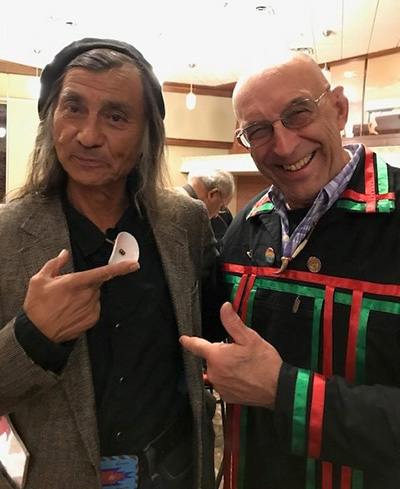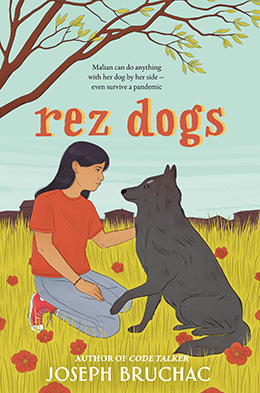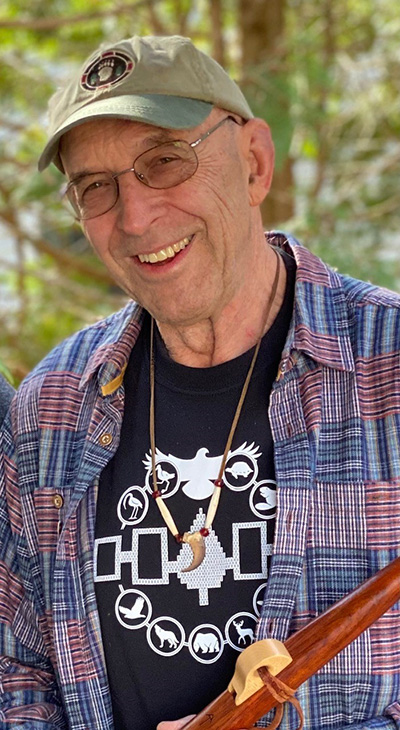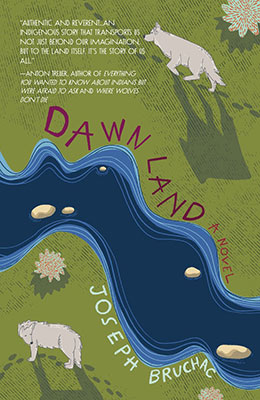Avi’s 2024 Summer Blog Series
Joseph Bruchac
From Avi: As I did in the summer of 2023 and the summer of 2022, I’ve invited 13 admired middle grade authors to write for my blog for the next three months. I hope you’ll tune in each Tuesday to see who has answered these two questions we’re frequently asked by readers. You should have a list of terrific books to read and share by the end of the summer … along with new authors to follow!
Where did you get your idea for a specific book of yours?
There are a number of things about my new, middle grade novel, Rez Dogs that make it different from any book I’ve done before. In fact, before I go any further, I should point out that, even though I am listed as the author, I did not write it.
Nope — I dictated it into my cell phone.
At this point, let me back up about five years. That’s when we got a new puppy, a rather large miniature poodle, we named Kiki, (By the way, that’s not a French name. Ki means earth in the Abenaki language.) The Kiker is an enthusiastic high-octane baby, and if she doesn’t get her morning walk, she’s about to burst. Those morning walks come at the time when I was usually writing before she came along. But I figured out how to do two things at once. With her leash in my left hand and my cell phone in my right hand, I could talk into that little word-catching device anything I might otherwise be tapping into my computer. Then send it to myself in an email. Which email I would paste into a file and revise as needed.
At first, what I was dictating were haiku. I have been composing at least one every day for the last five years. (Over 1800 at last count.) Then I began to talk about things I was remembering and things I was seeing as we watched the change of seasons on our morning strolls. Much of that ended up in a new nonfiction book of mine called A Year of Moons.
And then came Covid. It interrupted a lot of things for me, especially travel and seeing other folks. But it did not totally change the life that my wife Nicola and I were living in our cabin on a nature preserve in the Adirondack foothills. We still had plenty of room to go outside, and I could take my long morning walks on the deserted logging road that runs past our property.
Because of Covid, my thoughts often turned to what young people were experiencing as a result of the enforced lockdowns all around the world. Then I began to think more specifically about how it was affecting Reservation communities. I have been to many of them over the last half century and have a lot of friends there. In my mind’s eye, I began to see a young woman on one of those communities — such as Indian Island or Pleasant Point in Maine. Then I saw a dog by her side. Not a poodle like my partner Kiki but one of the old reservation dogs that looks at least half wolf. And that is when I knew I had to tell their story, and the title for the book came to me.
That title, I should point out, was chosen before my favorite new TV series appeared — the one named Reservation Dogs that focuses on several modern-day Native teenagers and an Oklahoma reservation. (Quite a few folks I know have been in that show and I even have pictures in my phone of some of them posing in past years with me.)

Another different thing about my novel is that it ended up being written in verse. That was a first for me — although it will not be my last. I’ve just completed another novel in poetic form and I’m working on a third one.
I did not know I was composing it as poetry until I finished the first chapter and then read it aloud to myself—something I do with everything I write. That was when I realized my line breaks and the flow of the narrative had a poetic rhythm, one that matched the rhythm of my walking. Considering that the term “feet“ is regularly used in poetry, that should not have been surprising to me.
Another aspect of the novel is that it is built around traditional stories being narrated by my main character’s grandparents. And all of those stories relate to dogs. That is another thing I had not planned. It just happened. But it is true that throughout my own life, dogs have always been there. In fact, dogs play a major role in a number of my books, including a historical fantasy written for young adults — re-edited and about to be re-issued — a novel named Dawn Land.
Further, insofar as Mali listening to those stories her grandparents tell her, lesson stories that relate to Mali’s life, that’s also something that ties into my own life. I was raised by my grandparents and wherever I’ve gone — including my travels in Europe and Africa — I’ve always gravitated to elders who had stories to tell. So, you might say, Mali is a bit like me.
What’s your best writing advice for young writers?
Thinking back on my own life and whatever success I’ve been fortunate enough to enjoy as an author, there’s one piece of advice I like to pass on to young writers. It’s simple, but some folks find it hard to do. BE A GOOD LISTENER.
I’ve heard it said by many elders that we humans were given two ears and only one mouth — so we were meant to listen at least twice as much as we talk. It’s amazing the things you can learn if you just listen and keep listening.
Particulars
A recent book by Joseph:
Dawn Land
About ten thousand years ago in the northeast, the Abenaki — People of the Dawn Land — created a thriving community in social and ecological balance with nature and with each other. One of the finest sons of the People is Young Hunter, who dedicates himself to becoming a pure hunter. But a shadow is crossing over this place, threatening his beloved homeland, and Young Hunter is called to its defense. The deep-seeing one of his village, Bear Talker, tells him that the change will be brought by beings of great power, with cold hearts and a terrible hunger, and Young Hunter has been chosen to fight them. “This young one will do things for the people,” Bear Talker thought. “If he survives … if he survives.”



1 thought on “Summer Blog Series: Joseph Bruchac”
I can’t wait to read Rez Dogs and share it. Dawn Land too!